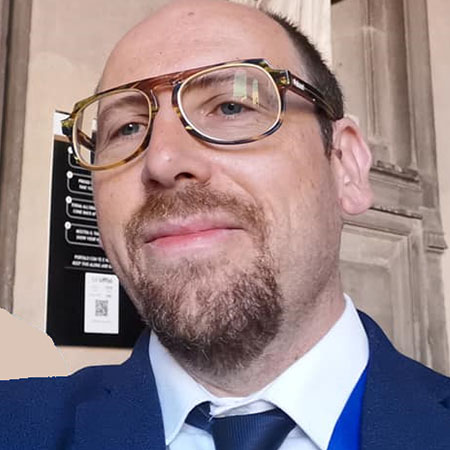Exploring the Influence of Machine Learning on the Architecting of Intelligent Systems
Henry Muccini
Professor in Computer Science, Software Engineering, University of L'Aquila, Italy

Abstract: Architecting involves crafting the foundational structure of intricate software systems, aiming to engineer high-quality software through intentional design. Over time, many foundational methods and practices have emerged, encompassing architectural patterns and tactics, design decisions, and views and viewpoints modeling perspectives. An ML-enabled system is a sophisticated structure that integrates both ML and non-ML components, collaborating to generate an intelligent system. The machine learning components can either serve as a modest and distinct extension to a substantial conventional system or constitute the core, surrounded by minimal non-machine learning code.
Architecting ML-enabled systems means coordinating software, data, and model stakeholders to make ML and non-ML components properly work together. Known practices, such as architectural tactics, design decisions, views, and viewpoints, must be revised in light of new complexities imposed by ML-enabled systems. Recent studies have highlighted challenges to be considered when architecting (or re-architecting for) ML-enabled systems. This talk will highlight the influence of Machine Learning components when architecting complex modern systems, briefly touching upon using ML for improving software architecting and architecting ML-enabled systems. The audience will be also exposed to how ML influences the collaboration among different stakeholders, requires new architecture tactics, and emerging quality attributes.
Bio: Henry Muccini serves as a professor in Software Engineering at the University of L’Aquila, Italy, and has previously held a visiting professorship at the Donald Bren School of Information & Computer Sciences, University of California, Irvine. His primary research interests encompass software architecture descriptions and analysis, architecting ML-intensive applications, green software engineering, and data architectures. After over two decades of dedicated exploration in both foundational and applied aspects of software architecture research, my deep enthusiasm for the field remains steadfast.
I am currently chairing the steering committee of the International Conference on Software Architecture and serving as a member of the European Conference on Software Architecture steering committee. Additionally, I am a member of the organizing committee of the International Conference on AI Engineering – Software Engineering for AI and I am actively involved in co-organizing the workshop series on Software Architecture and Machine Learning. Together with my research team, known as the FrAmeLab, we focus on advancing the state-of-the-art in Software Architecture and Software Engineering. We welcome collaboration opportunities with fellow enthusiasts in the field of software engineering. Interested parties are encouraged to reach out for further information and potential collaboration opportunities.